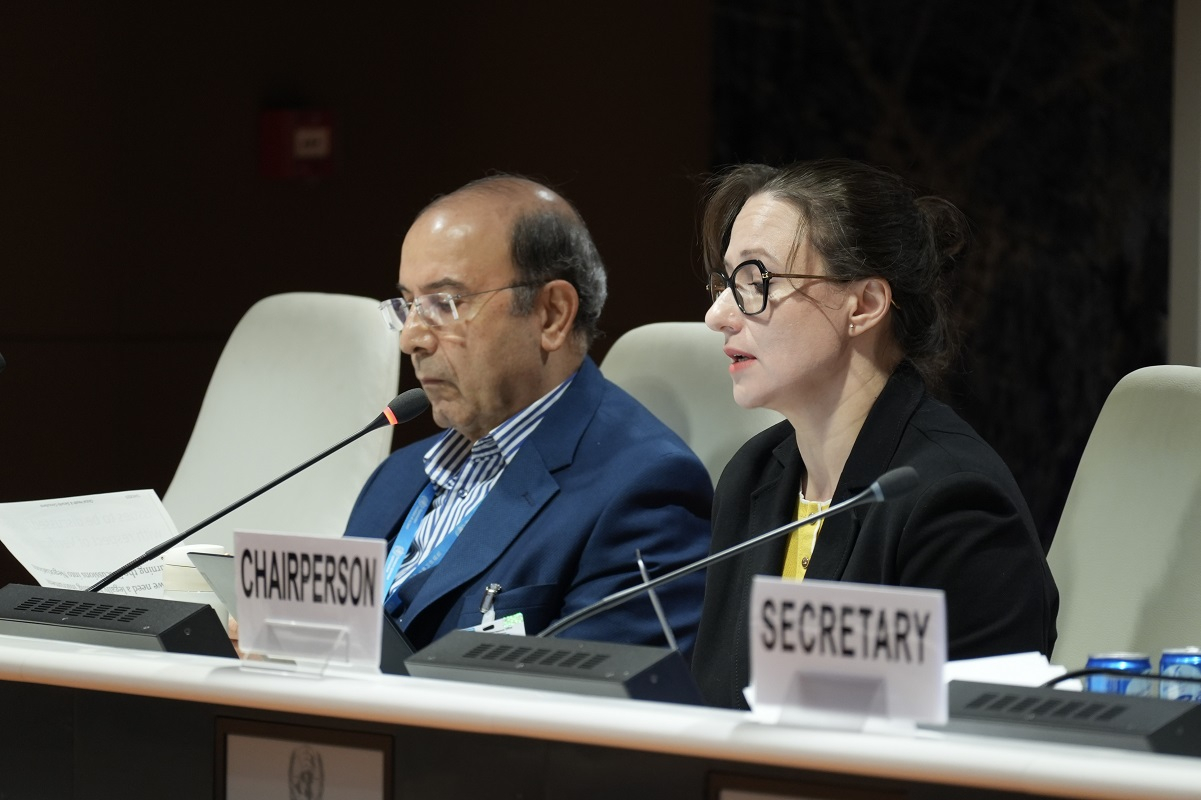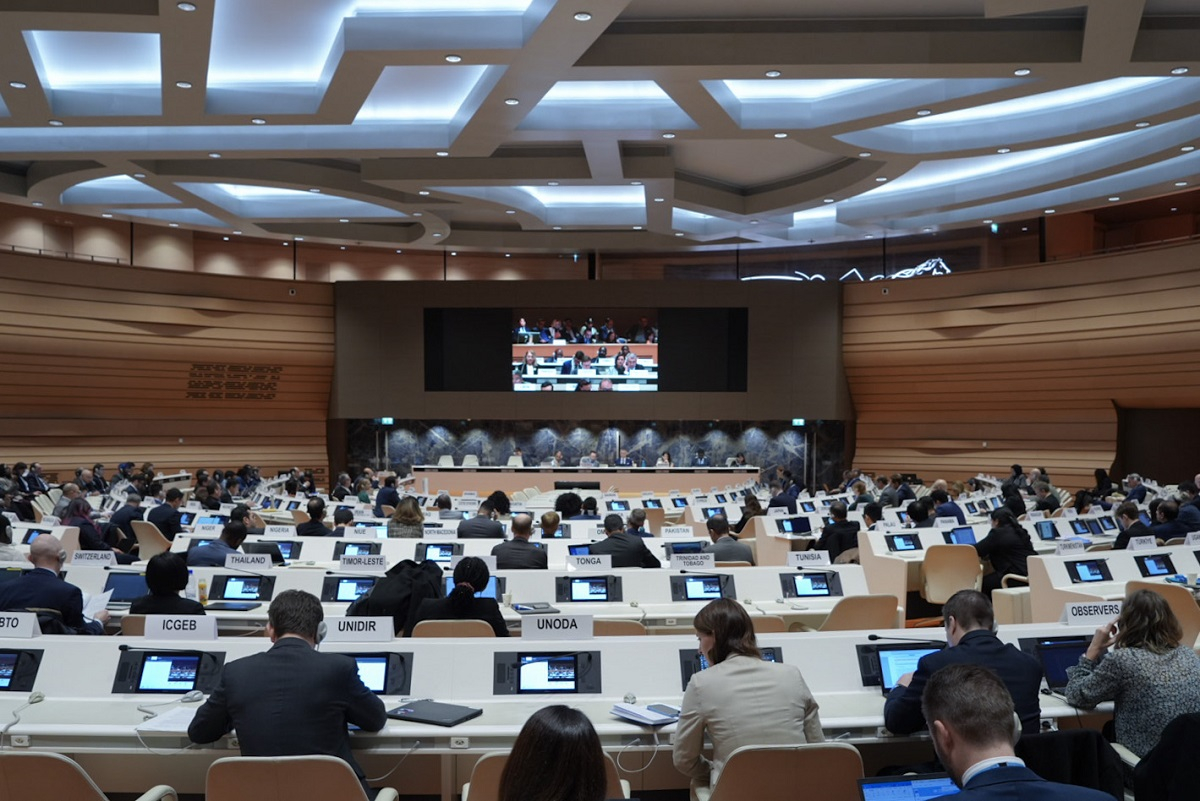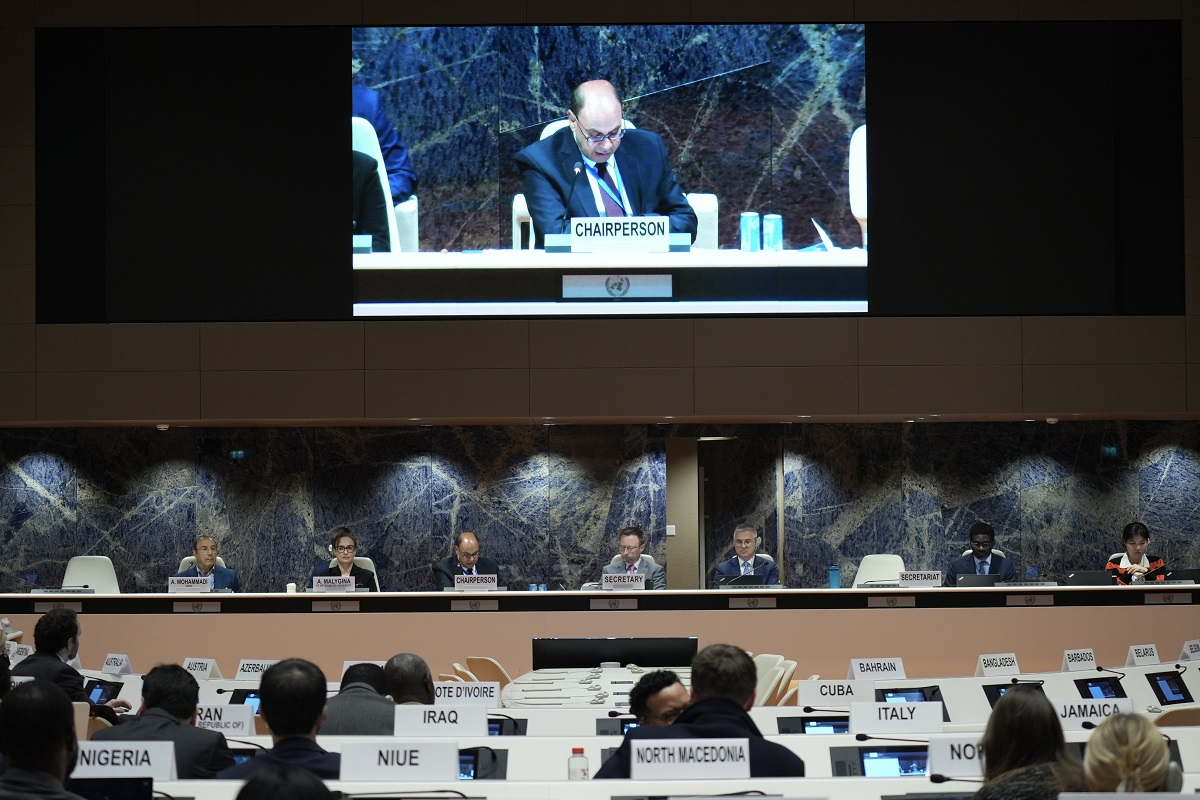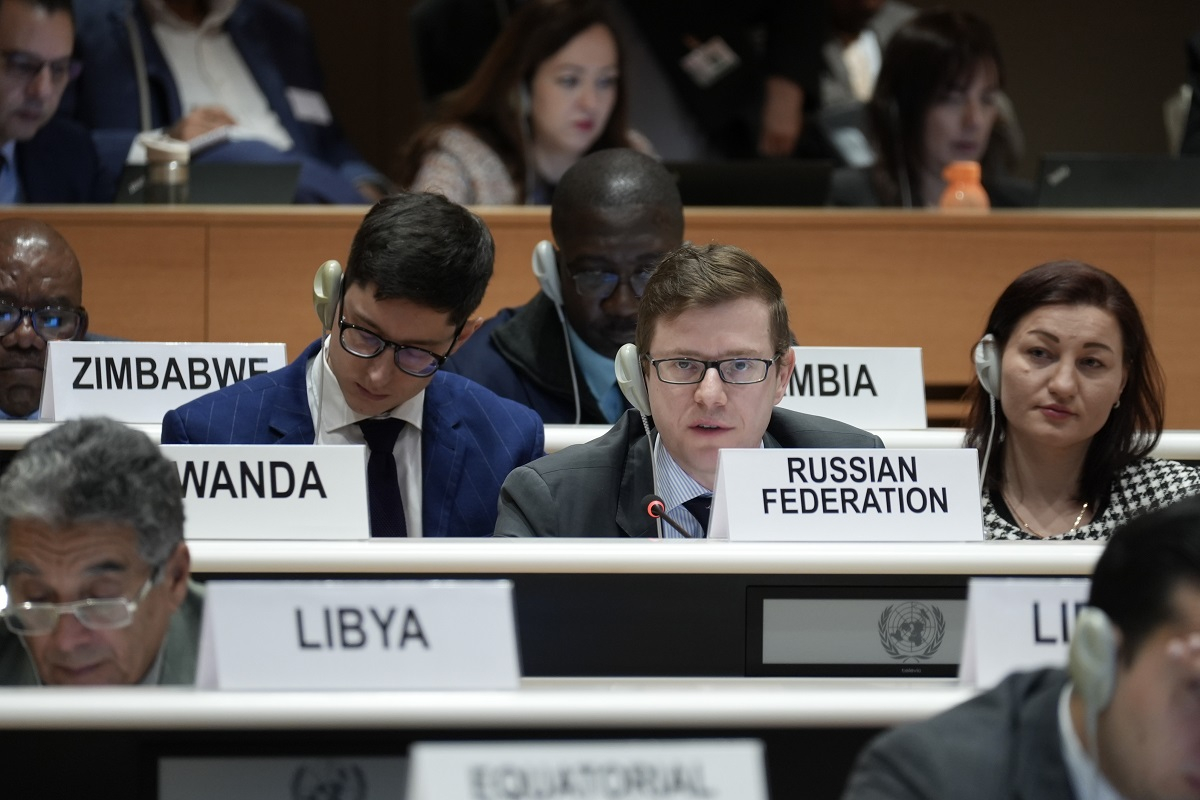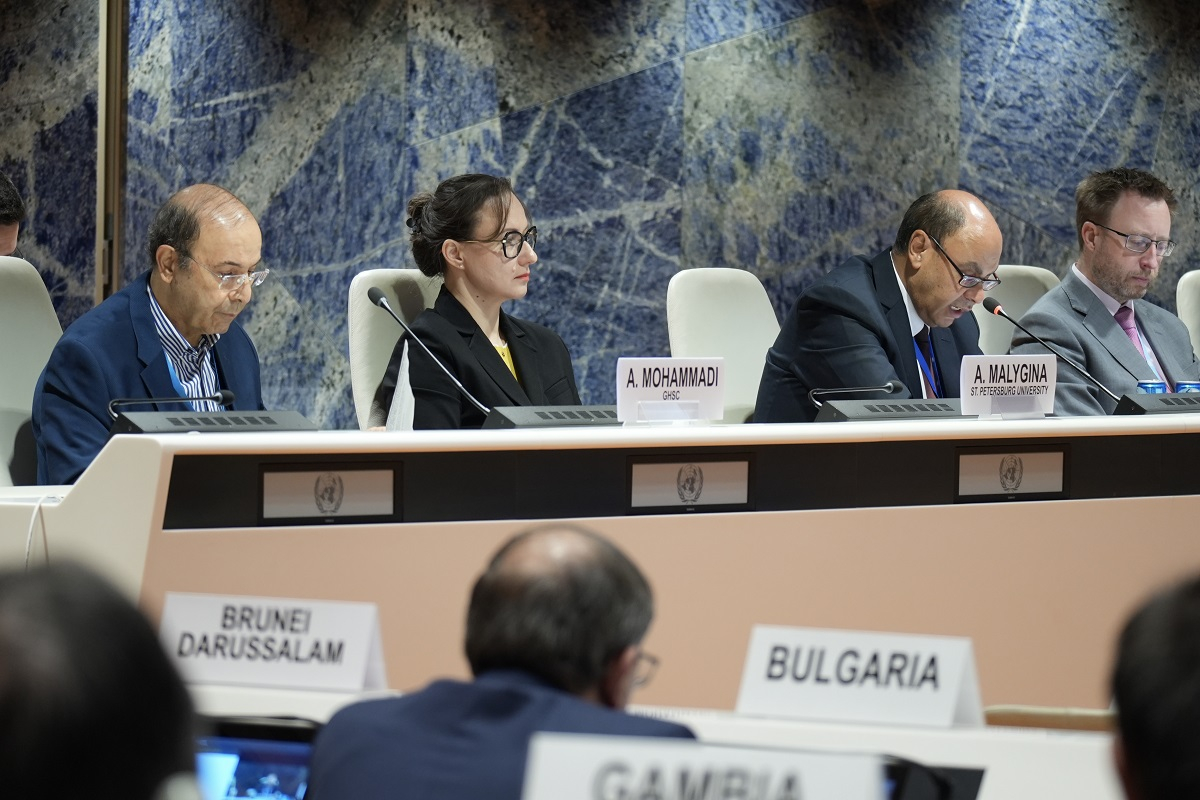St Petersburg University expert speaks in Geneva at the meeting of the working group on strengthening the Biological and Toxin Weapons Convention
Anastasiia Malygina, Director of the Interdisciplinary Centre for Global Biosafety Studies at St Petersburg University, has presented a report on the problem of verifying compliance with the convention and answered questions from delegations of States Parties to the Biological and Toxin Weapons Convention (BTWC) in Geneva, Switzerland.
Against the backdrop of the coronavirus pandemic, the challenges of strengthening the BTWC have become particularly relevant. The Biological and Toxin Weapons Convention, which entered into force in 1975, is now noticeably inferior to the Treaty on the Non-Proliferation of Nuclear Weapons Treaty and the Chemical Weapons Convention both in terms of the degree of institutionalisation and the number of parties. This session of the working group on strengthening the BTWC was the third meeting of the consultative mechanism established with the active participation of Russia in 2022.
At the invitation of the Acting Chair of the BTWC Working Group, Anastasiia Malygina, Associate Professor of St Petersburg University, addressed the meeting. This is the first time that a staff member from St Petersburg University has spoken at such a high diplomatic level event within the framework of the BTWC review process. In previous years, Anastasiia Malygina attended such meetings as an observer.
During her presentation, Anastasiia Malygina stressed the need for legally binding provisions describing clear and unbiased procedures for verifying compliance with the BTWC. The expert also noted that it is important to develop mechanisms not only to detect non-compliance with the obligations imposed by the convention, but also to respond to possible violations.
The verification process should be scientifically sound and adaptable to technological changes.
Anastasiia Malygina, Director of the Interdisciplinary Centre for Global Biosafety Studies, Associate Professor of St Petersburg University
In her speech, Anastasiia Malygina, Associate Professor of St Petersburg University, also spoke about the changes taking place in the world that have a significant impact on the BTWC regime. According to the expert, the structure of the biosecurity problem has become many times more complex: the problems of public health, food security, preservation of natural diversity have become more acute, and the range of problems related to the development and improvement of dual-use technologies is rapidly expanding. ‘The Biological and Toxin Weapons Convention needs additional universal principles and international mechanisms to ensure biological security in all its aspects,’ the speaker said.
The working group on strengthening the BTWC was established in August 2002. Its task is to analyse not only opportunities but also obstacles to strengthening the convention, which is an effective mechanism for ensuring international security in terms of preventing states from using biotechnology for harmful purposes.
The report of the expert from St Petersburg University aroused the interest of the delegations participating in the working group meeting. The text of the presentation is available on the website of the United Nations Office for Disarmament Affairs. During the existence of the master’s programme ‘Strategic and Arms Control Studies’ under the supervision of Associate Professor Malygina, three master’s theses on the issues in strengthening the BTWC have been successfully defended. The defence of the fourth one is expected to take place in the spring-summer exam period of 2024. The extensive experience of St Petersburg University in the development of education on BTWC issues was presented in the reports of Associate Professor Malygina at the international conference "Global Threats to Biological Security. Problems and Solutions", held in Sochi in 2021 and 2023.


